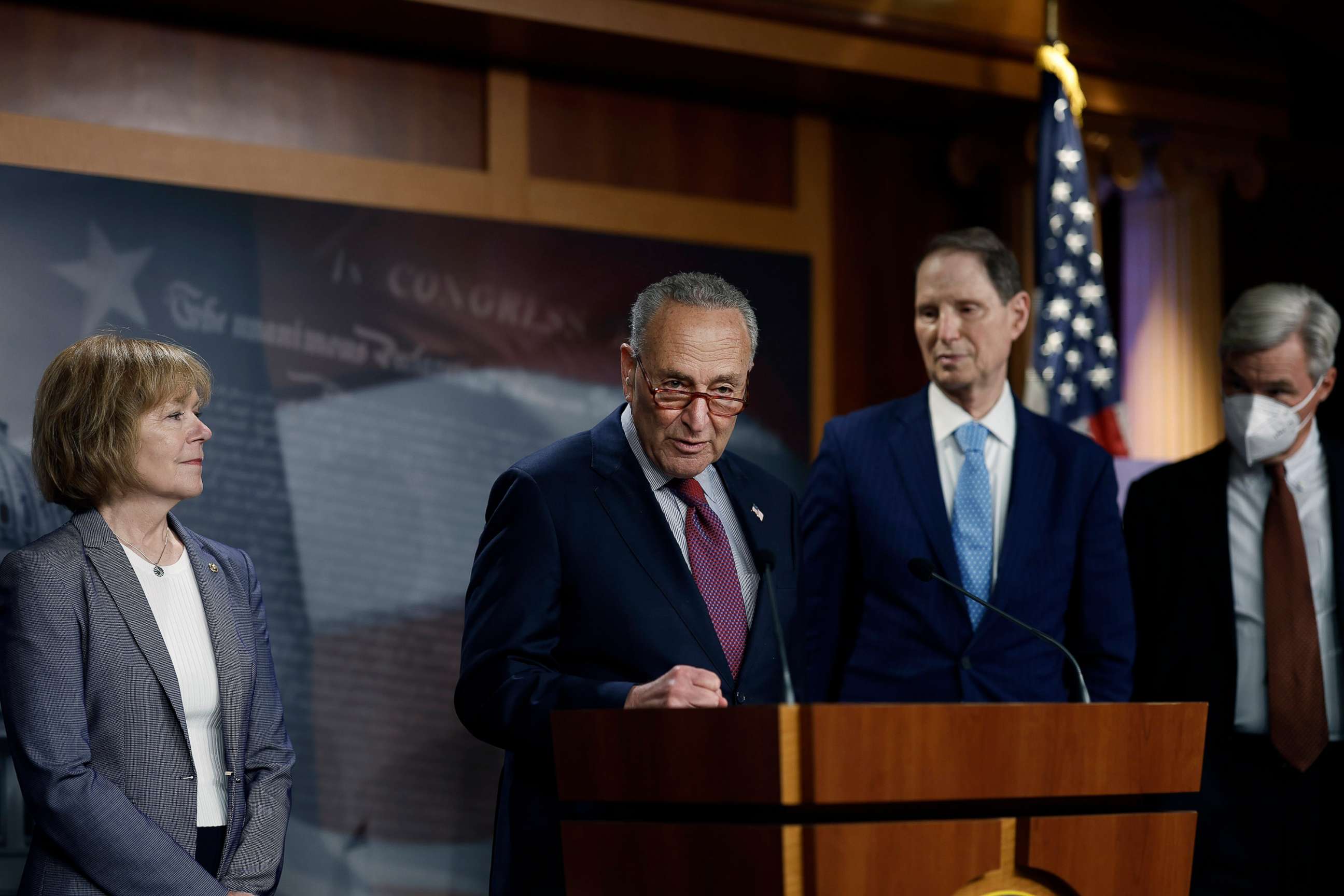Democrats projected to keep control of the Senate
Democrats are projected to keep their majority in the Senate, ABC News reports.
Sen. Catherine Cortez Masto's projected victory in Nevada on Saturday clinched the chamber for Democrats, giving them the 50 seats needed regardless of the outcome of next month's runoff election in Georgia.
The win is a major boost to President Joe Biden in the second half of his term, both for his legislative agenda and his ability to appoint judges and other officials.
Despite having the slimmest of possible Senate majorities -- 50 caucus members and Vice President Kamala Harris as the tie-breaking vote -- Democrats in Biden's first two years were able to pass some of their key priorities.
They gained enough bipartisan support to pass a sweeping infrastructure investment bill, the first major gun safety legislation in decades and legislation boosting domestic production of computer chips.
The party also checked off priority items in reconciliation bills -- legislation that only requires a simple majority for approval. That's how Democrats passed the American Rescue Plan, which provided COVID-19 funds, and the Inflation Reduction Act, which made investments in climate change and health care.
Control of the House was still up in the air on Saturday, as vote counting continued in more than a dozen races. How much Biden will be able to accomplish will also hinge on whether Republicans or Democrats control the lower chamber. Republicans have already laid the groundwork for investigations of the Biden administration and even members of the president's family.

Still, Senate Majority Leader Chuck Schumer, D-N.Y., took a moment late Saturday to celebrate the Senate win.
"This election is a victory -- a victory and a vindication for Democrats, our agenda, and for America and for the American people," Schumer said as he held a press conference at his Manhattan office.
"The American people rejected -- soundly rejected -- the anti-democratic, authoritarian, nasty, and divisive direction that MAGA Republicans wanted to take our country in," he added.
The fate of the Senate came down to just a handful of battleground states, including Arizona and Pennsylvania. Political heavyweights for the party, including Biden and former President Barack Obama, hit the campaign trail hard in the final weeks in an attempt to stoke enthusiasm.
Republicans gained ground with voters in those races in the final stretch of the campaigns, polling showed, but Democrats emerged victorious.
Democratic Sen. Mark Kelly defeated Republican Blake Masters in Arizona. Pennsylvania's race was projected on election night for Democrat John Fetterman, who won against celebrity Dr. Mehmet Oz and flipped the seat opened by retiring Republican Sen. Pat Toomey.
Georgia's Senate race between Democratic incumbent Raphael Warnock and Republican Herschel Walker is heading to a runoff on Dec. 6. Neither candidate received more than 50% of the vote, but Warnock led Walker 49-48%.
Senate Minority Leader Mitch McConnell, R-Ky., earlier this year tempered expectations of a red wave by questioning "candidate quality." While he didn't name any candidates, among the more controversial Republican nominees this cycle were Walker in Georgia or Oz in Pennsylvania.
"I think there's probably a greater likelihood the House flips than the Senate. Senate races are just different," the GOP leader said. "Candidate quality has a lot to do with the outcome."
Still, McConnell's Senate Leadership Fund spent at least $230 million this cycle trying to win back control of the chamber, according to OpenSecrets.
The Senate Majority PAC, a group aligned with Schumer, spent at least $155 million, according to OpenSecrets.




